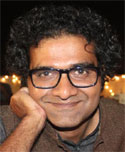
By Arshad Alam, New Age Islam
17 January 2017
The often lazy display in understanding the complexity of the Muslim situation can be found today in the Indian media, particularly television. Whether there is a discussion on education, health, politics or gender, we find that the Muslim is represented by some Alim, who pontificates on every given issue as if they are experts of all that is going on within the Muslim society. One is flabbergasted to hear some Maulvis giving his views in areas where the person has no expertise. But the more important point perhaps is why does the electronic media think that the Ulema represent Indian Muslims? Is it just their ignorance or is there some deep structure in their unconscious which makes them believe that Muslims can best be represented through the Ulema?
It is not just the media which gives them such importance, but even average Muslims themselves hold them in high regard. In matters especially concerning those of religion, their views are taken seriously and even adhered to by scores of Muslims. Some Muslims even regard them as leaders of the community and thus they are listened to carefully in matters of politics and a certain kind of leadership role is expected from them. Even if such Muslims are in a minority, it is generally observed that when a Maulana speaks up on some issue, everyone listens in rapt attention and there is hardly any questioning of the position taken by that particular Alim.
As part of myth making, the Ulema would let us believe that they were important since the beginning of Islam. But things were not always this good for the Ulema. Indeed in the early years of Islam, they hardly existed as a class. The ‘golden age’ of Islam tells us that there was always a tension between the Ulema and the philosophers. The latter did not take them seriously and at times publicly lambasted them for their limited understanding of how the world works. To make matters worse, there were poets whose favourite pastime was ridiculing the Ulema for the incoherence of their thoughts. Moreover, philosophers were Aalim in their own right: no one could accuse Ibn Sina or IbnRushd for not knowing religion. Indeed, in their own worlds there was hardly a distinction between the pursuit of religious and material knowledge. They excelled in both and looked down on the Ulema who were pre-occupied with the other world without understanding how the present world worked and manifested the glory of Allah. And then of course there were the Sufis, having mass following, who championed the cause of batini (inner) khilafah and lampooned the Ulema for their limited understanding of religion, often accusing them of inventing newer interpretations of Islam for the benefit of the King.
Despite such a healthy scepticism against the Ulema, how is it that today they have come to occupy the imagination of the Muslims and others? In the Indian context, part of the answer lies in the movement for protecting the Khilafat which was launched in 1919. For the Congress, it was an attempt to bring Muslims closer to the organization on an emotive issue. But this was perhaps for the first time, that the Ulema had an organization of their own: the Khilafat Conference. History tells us that this Conference hardly achieved anything: the issue itself was lost when the Turkish people revolted and abolished the caliphate itself. But the Ulema had tasted something different: it was no longer the issue of the caliphate but the discovery that Islam could be used to mobilize Muslims. And there has been no looking back since. With the passage of time, this consciousness among the Ulema has only grown.
Today most of them do not operate individually as was the traditional arrangement of power. But they are part of some organization and derive their strength by being part of that collective. Almost all maslaks have their own organization and there are deep doctrinal differences between them but they get united as a class whenever a need arises. The recent bonhomie between the Bareilvis and Deobandis is a recent example. The issue at hand is not a rational argument for or against triple Talaq. The issue at the core is: who gets to interpret and define what Islam is? The Ulema as a class are unwilling to let go of their power to define and represent Islam despite causing pain and humiliation to millions of Muslim women.
One is often left wondering whether the current politics of the Ulema resembles the workings of a de facto church, something which has no sanction in Islam historically or even theologically.
----
Arshad Alam is a NewAgeIslam.com columnist
New Age Islam, Islam Online, Islamic Website, African Muslim News, Arab World News, South Asia News, Indian Muslim News, World Muslim News, Women in Islam, Islamic Feminism, Arab Women, Women In Arab, Islamophobia in America, Muslim Women in West, Islam Women and Feminism




 Moderate Islamist here
Moderate Islamist here


0 comments:
Post a Comment